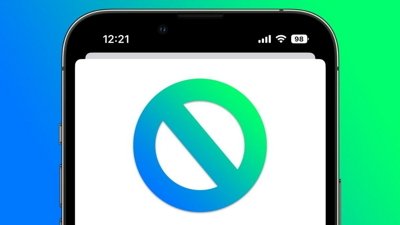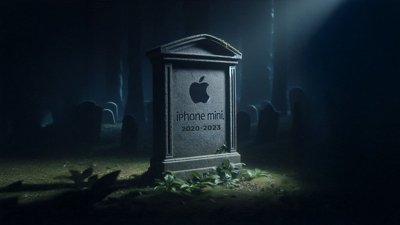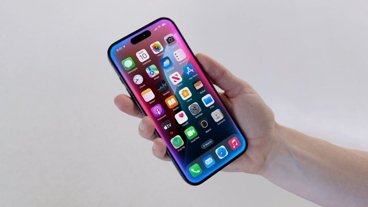Apple on Wednesday reported record sales of its iPhone and iPad lineups, along with record revenue, but sagging Mac sales and unmet Wall Street expectations dinged the company. Following its earnings report, the company held a conference call with investors and members of the media, and notes of interest follow.
Highlights
- Apple Chief Executive Tim Cook started off the call by saying the most important thing to his company is that customers love their products.
- More than a half-billion iOS devices have been sold, with 75 million sold in the last quarter alone.
- This year's holiday quarter had one less week than the same period did in Q1 2012.
- Apple's cash now totals $137.1 billion, a sequential increase of over $16 billion. Over $94 billion is overseas.
- Cook on rumors of iPhone production cuts: People should question the accuracy of any reports about build plans.
- iMacs were down by 700,000 units year over year
- Cook also promised that Apple has "incredible stuff" coming down its product pipeline.
Apple's iPhone business
iPhone sales reached 47.8 million units in the quarter, good for a 29 percent increase from the same period a year ago.
Revenue from the iPhone business was similarly up 28 percent year over year, reaching $30.6 billion.
Average 3.7 million iPhones sold per week in first quarter compared to 2.6 million per week from a year ago, represents an average increase of 39 percent per week.
Sequential increase of 79 percent from September quarter, over 3.5 times IDC projection for overall smartphone market.
Ended quarter with about 10.6 million iPhones in channel inventory.
Chief Financial Officer Peter Oppenheimer noted that many government agencies are issuing iPhones "by the thousands," including NASA, NOAA, Immigrations and Customs Enforcement, and the Transportation and Security Administration.
Companies highlighted as rolling out thousands of units were also Neiman Marcus and Volvo.
The iPhone saw the highest growth in China — "into the triple digits," Cook said.
Cook said "no one comes close" to matching the quality of the Retina display on the iPhone 5.
"We put a lot of thinking into screen size and believe we've picked the right one," he said, in response to a question about larger-screened smartphones.
iPhone 5 was fastest iPhone rollout ever, 100 countries by the end of December.
iPhone 5 production was in constraint to start the December quarter, while the iPhone 4 — which is available for free with a service contract — was constrained throughout the quarter.
"The supply chain is very complex, and we obviously have multiple sources for things," Cook said. "Yields might vary, supplier performance might vary." He suggested market watchers not pay attention to a "single data point."
Notification Center has sent more than 4 trillion notifications, a number Cook said is "mind blowing."
Apple's iPad business
Apple saw the most growth from its iPad business in the holiday 2012 quarter, with unit growing by 48 percent year over year to 22.9 million.
iPad sales average 1.7 million per week compared to 1.1 million a year ago, an average increase of 60 percent.
Revenue growth for the iPad wasn't as strong, as lower margins on the iPad mini affected the company's revenue, holding it to 22 percent year over year growth.
Financial institutions like Barclays, Nomura Securities and Bank of Beijing deploying iPads among employees for secure customer service. Barclays rolled out more than 8,000 iPads, Oppenheimer said.
State and local governments are also "rapidly adopting" the iPad, he said, replacing "huge amounts of paper."
International government deployments strong with Sweden deploying 10,000 iPads and over 5,000 purchased by the Netherlands for Dutch tax authority and court system.
Started and ended quarter with 3.4 million iPads in channel inventory, below target range of four to six weeks.
Apple's Mac business
The Mac took a major hit in the holiday quarter, with sales dropping from 5.2 million a year ago to 4.1 million in holiday 2012, a decrease of 22 percent.
Revenue wasn't down quite as much, sliding 16 percent year over year.
IDC estimates the total computer market contracted by 6 percent in the quarter, Oppenheimer noted.
Apple was "significantly constrained" of inventory of the new iMacs. Oppenheimer said the company believes Mac sales would have been "much higher" if not for those constraints.
"The most important thing to Apple is to make the best products in the world that enrich customers' lives," Cook said, adding that the company is "not interested in revenue for revenue's sake."
iMac took a hit and the company left the quarter with "significant constraints" on its all-in-one desktop.
Last year there were 14 weeks in the quarter. This year there were 13 weeks.
Channel inventory was also down from the beginning of the quarter by over 100,000 units.
"If you just take these three factors, they bridge more than the difference between this year's sales and last year's sales," Cook said.
He also pointed out some "lesser things," including the fact that the market for PCs is weak, and iPad cannibalization of the Mac.
Apple's iPod business
iPod sales continued their steady decline, reaching 12.7 million in the holiday quarter, off 18 percent from a year prior.
Revenue for the iPod line was also down by 15 percent.
iPod touch was a "popular item" over the holiday season and accounted for more than half of iPods sold, Oppenheimer said.
iPod share of U.S. mp3 player market stood at 70% in the December quarter, top seller internationally.
Apple's iTunes business
Revenue from Apple's iTunes business was up 25 percent year over year to $1.8 billion.
56 new iTunes countries were added during the quarter, now available in 119 countries. Over 20 million songs to choose from.
App Store had a record breaking quarter, and there were more than 2 billion downloads in the month of December alone.
App Store now offers over 775,000 apps to over 500 million users in 155 countries, including over 300,000 native iPad apps.
Cumulative app downloads at 40 billion with $7 billion paid out to developers
Apple's retail business
Retail sales were up just 5 percent year over year — smaller than usual growth for the company which has seen its retail stores take off over the last decade.
A total of 11 new stores were opened in the quarter, including four new ones in Greater China.
14 stores were relocated or expanded during the quarter.
With an average of 396 stores open, average revenue was $16.5 million.
Hosted a record 121 million visitors during the quarter, compared to 110 million a year ago.
Apple's regional business segments
Record all-time revenue high of $6.4 billion in sales driven by iPhone and iPad, income at $1.6 billion.
Apple Stores averaged $16.3 million or $1.25 million per store per week, compared to $1.22 million per store per week during same period last year.
Record 121 million visitors compared to 110 million a year ago.
Apple was hardest hit by year over year revenue increases of 10 percent in Japan, 11 percent in Europe, and 15 percent in the Americas.
The company's strongest growth came from Greater China, where revenue was up 67 percent year over year.
This is the first quarter where Greater China has been broken out as its own business segment. It includes Greater China, Taiwan and Hong Kong.
Apple's next (Q2 2013) fiscal quarter
Guidance to be changed from single point to range guidance, Oppenheimer said.
Apple is projecting revenue between $41 billion and $43 billion for the next quarter, with gross margins between 37.5 percent and 38.5 percent.
Operating expenses are expected to be between $3.8 billion and $3.9 billion, with a tax rate of 26 percent.
Other income and expenses (OI&E) expected to be $350 million.
 AppleInsider Staff
AppleInsider Staff






-m.jpg)






 Christine McKee
Christine McKee
 Wesley Hilliard
Wesley Hilliard
 Thomas Sibilly
Thomas Sibilly
 Marko Zivkovic
Marko Zivkovic
 Andrew O'Hara
Andrew O'Hara
 Amber Neely
Amber Neely
 William Gallagher
William Gallagher









61 Comments
How much cash on hand?
In other words, everything is up which makes the company an utter failure according to Wall Street. Can we call Apple beleaguered again?
How much cash on hand?
Would you believe "a lot"?
Apple was doomed yesterday. Today's evidence that they are doing great... proves, somehow, that they are even MORE doomed. Time to "ding" the stock. Apple's been in a nose dive since the 80s. Any appearance of their success is all illusion, believed only by fanboys. :p
time for TV!